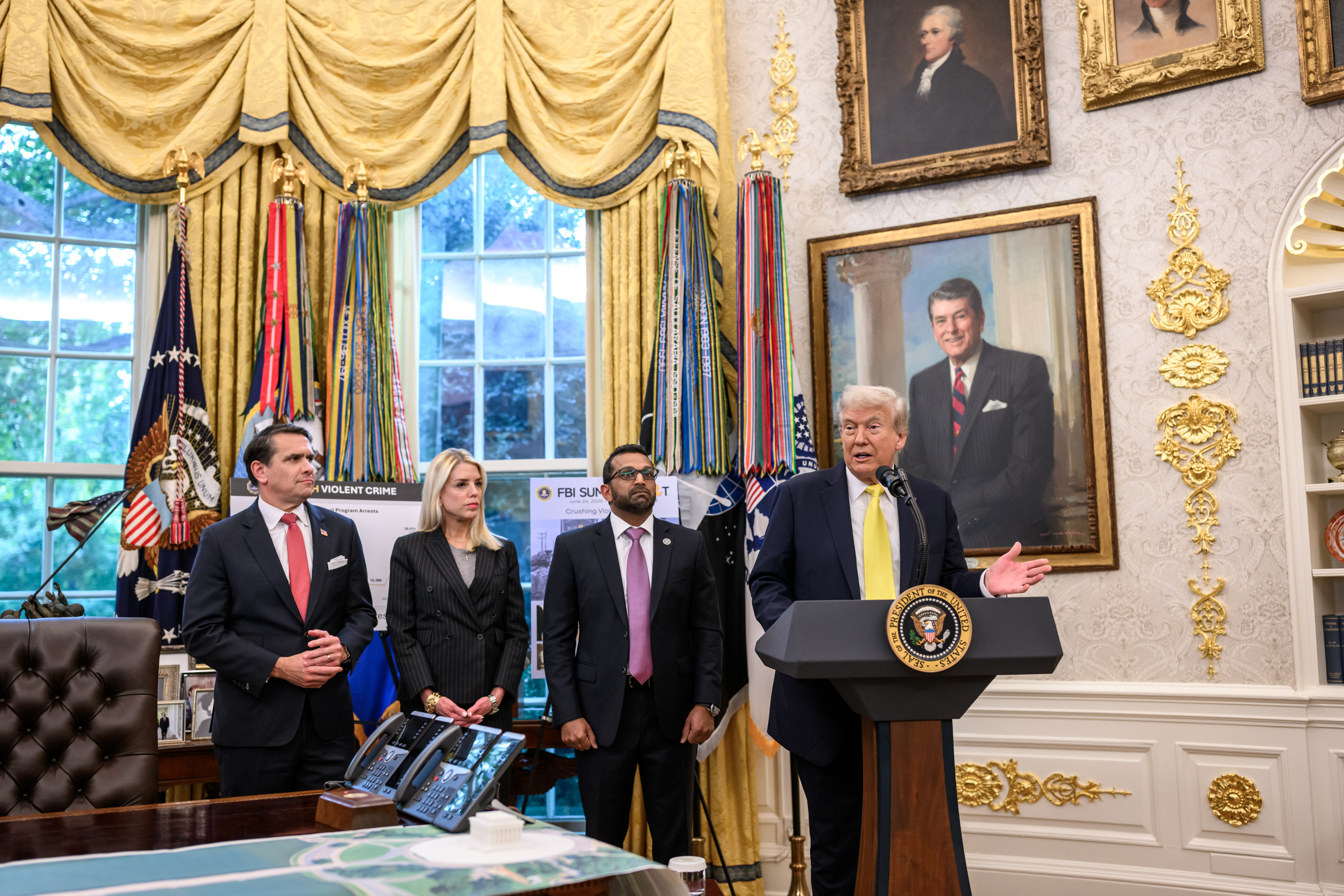A Response to Human Rights Watch and Human Rights First
I promised yesterday that I would have more to say about Andrea Prasow's comments on the fairness of the Majid Khan plea agreement after I had a chance to stew on them a bit. In the meantime, I have learned that Human Rights Watch, for whom Prasow works, is not the only major human rights organization to have weighed in on the Khan plea.
I promised yesterday that I would have more to say about Andrea Prasow's comments on the fairness of the Majid Khan plea agreement after I had a chance to stew on them a bit. In the meantime, I have learned that Human Rights Watch, for whom Prasow works, is not the only major human rights organization to have weighed in on the Khan plea. In this post by Advocacy Counsel Melina Milazzo, Human Rights First offers a thematically similar critique. The emphasis in Prasow's and Milazzo's comments differs slightly, but as they both advance a similar thesis, I am treating them in a single post.
The thesis, as Milazzo puts it, is that "While this [deal] might be touted as a win-win for the U.S. government and Mr. Khan himself, it’s ultimately a loss for the integrity of the American justice system." Prasow formulates it in similar terms: "Yes, a man pleaded guilty today to serious crimes. But his plea is no victory, at least not for justice and the rule of law. Instead, it is a reminder that a fundamentally flawed system will continue to produce fundamentally flawed results."
I think this thesis is wrong on its own terms. I also think that the arguments Prasow and Milazzo muster in support of it are either wrong or non sequiturs--or both.
Let's start with their big picture point. In my view, at least, any time a criminal defendant is willing, voluntarily and without compulsion, to take responsibility for his crimes (which are in this case very serious crimes), that is a good thing. If we are to condemn it as "a loss for the integrity of the American justice system" or as "reminder that a fundamentally flawed system will continue to produce fundamentally flawed results," we need a pretty good reason to think the results flawed or lacking in integrity. I see no good reason here to think either. While the sentence Khan will receive is certainly lighter than the crimes he guilty pled to warrant, the government has garnered his cooperation in exchange for some degree of leniency--and that cooperation could prove crucial in other cases. And nobody who watched Khan's lengthy colloquy with Military Judge James Pohl could doubt that he was fully informed as to the legal consequences of his actions in signing this agreement or that he had done so voluntarily. To put the matter simply, a man accused of serious crimes voluntarily admits that the allegations against him are true, agrees to cooperate, and gets a considerable sentencing break in exchange. What exactly is the problem here?
Milazzo and Prasow offer a few possible answers, none of them in my view persuasive. Let's take them in turn:
First, Prasow complains that,
Khan's plea is a great win for the government, but not for the reasons one would assume. While it is true the prosecution can tout a new conviction at Guantanamo, the real win is that the CIA detention and torture program will not be put on trial. Now the public likely will not hear his testimony about his alleged torture and ill-treatment. . . . The more people who testify in person against KSM and others, the less likely it is that the public will learn more about his torture. And Khan's guilty plea means he will not present evidence of his ill-treatment to explain why he may have made any confessions. Instead, with the ink fresh on a plea deal, his years in secret detention will likely only be used at his sentencing in a plea for leniency.There are two problems with this argument. For one thing, the purpose of a criminal proceeding--any criminal proceeding--is not to try the government. It is to try the defendant. The purpose of putting Majid Khan on trial is not to expose the CIA detention and interrogation program or "to hear his testimony about his alleged torture and ill-treatment." And the purpose of putting KSM on trial is not to talk about waterboarding. Such matters may legitimately come up in a trial insofar they may affect the admissibility of the evidence the government wishes to use to prove its case, but it in no way undermines the value of a plea that it negates the need to litigate such matters. Indeed, the value of a plea is enhanced by obviating the need to litigate other matters. There are, of course, other proceedings designed to address those issues directly--a CIA inspector general's report, a Justice Department investigation, congressional oversight, the obsessive attention of the media, and litigation by human rights and civil liberties organizations, for example. The fact that none has satisfied Human Rights Watch is not a problem with military commissions, however, and it's not actually Majid Khan's problem either. Moreover, it is worth noting that had Khan been tried in federal court and reached a plea bargain with prosecutors--as the vast majority of criminal defendants do--the result would have been no different. We still wouldn't be having a trial that highlighted his treatment. Prasow ends her piece by insisting that "Civilian justice works. Let's use it." But if Khan might have reached the same deal in a civilian court, then Prasow's remedy does not address her complaint. Milazzo proposes a different reason to see the deal as something less than justice:
Khan’s plea deal suggests [that] trying cases before the military commission system remains risky and it is still uncertain whether detainees will face a fair trial. The U.S. military commission system, now in its third incarnation, faces lengthy litigation over the legality of trying individuals for offenses that do not actually constitute war crimes, the potential ex post facto problems with prosecuting conduct not considered criminal until the passage of the Military Commission Act, and the scope and meaning of the rule and procedures applicable during trials.The logical connection between these two paragraphs is, at best, attenuated. All of the litigation risk Milazzo describes in the second of them is real, yet the Khan plea deal in no way suggests any of it. Indeed, part of the essence of any plea is the waiver of appellate rights, and Khan thus won't be challenging whether any of his crimes are legit war crimes or whether the government is holding him accountable for them retroactively, and he won't be challenging any of the rules and procedures of the military commissions either. So what is it exactly about this plea that "suggests" that trying cases before military commissions is risky or that there is still uncertainty as to whether a fair trial is possible? Like Prasow's complaint about interrogation, Milazzo's ultimate complaint is that these things will not get litigated as a result of the plea, in other words that the plea reduces, rather than suggests, the litigation risks she identifies: "Pleading out of this inherently flawed system may be in the best interest of the Government as well as Khan, but it’s not in the best interest of justice." But again, the purpose of a criminal proceeding against Majid Khan is not to tee up issues that Human Rights First wishes to see litigated. It is to test the government's evidence according to fair rules and, if it satisfies stringent standards of quality, administer punishment against the defendant. That's what happened here. Complaining that the Khan trial didn't serve other interests too kind of misses the point.
Benjamin Wittes is editor in chief of Lawfare and a Senior Fellow in Governance Studies at the Brookings Institution. He is the author of several books.





